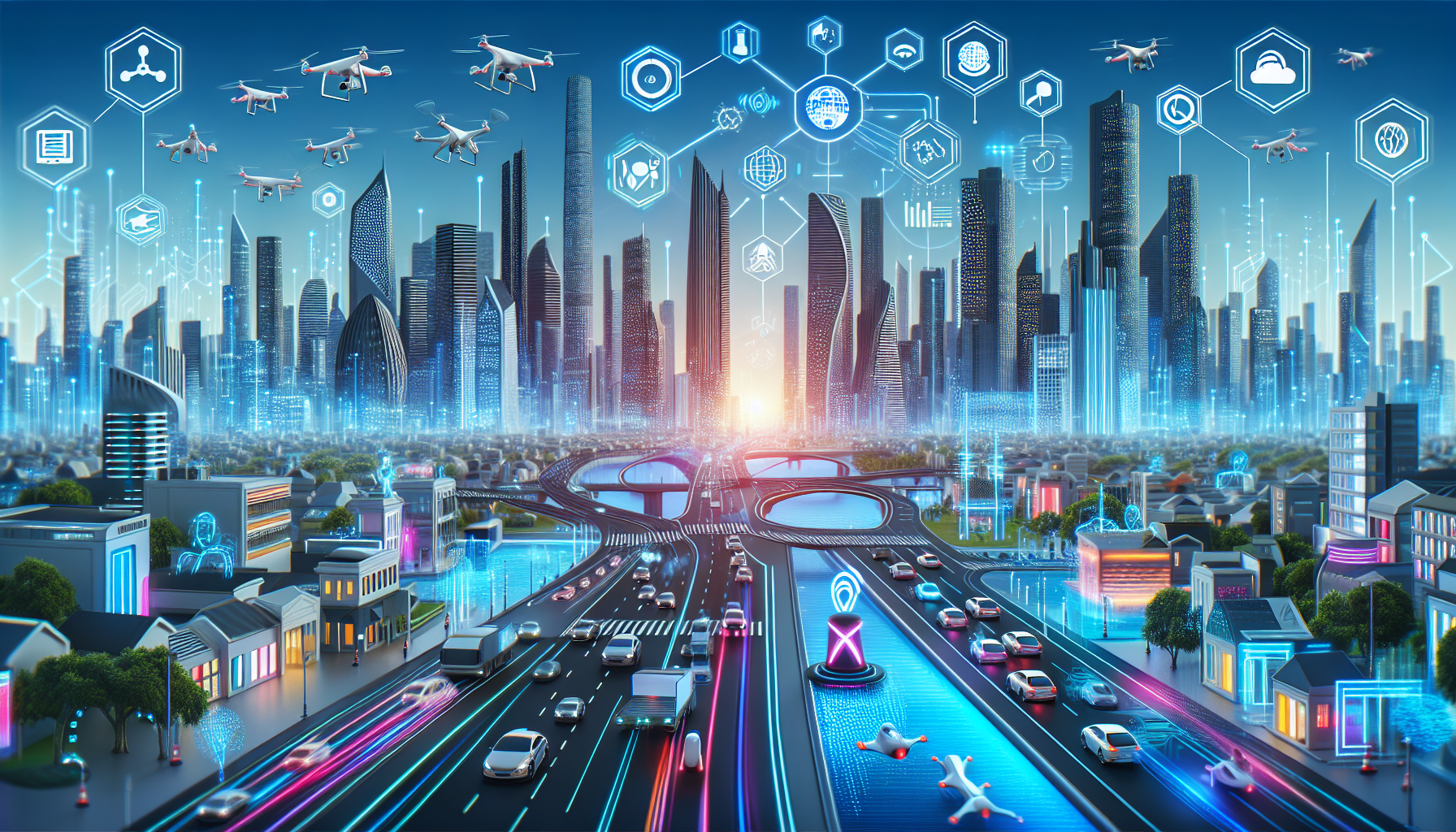Advertisements
The 4.0 Revolution is in full swing and Artificial Intelligence has played a fundamental role in this process. With increasingly rapid technological advances, the global economy is undergoing profound transformations that promise to impact all sectors by 2024. Artificial Intelligence has proven to be a powerful tool for optimizing processes, increasing efficiency and driving innovation. Companies of all sizes are investing in AI-based solutions to remain competitive in an increasingly dynamic and demanding market. In this context, it is essential to understand how Artificial Intelligence is shaping the global economy and what trends are expected to dominate the economic scenario in the coming years. Follow this article to learn more about the transformations that AI is promoting and how to prepare to take advantage of the opportunities that will arise in this new scenario.
The Influence of Artificial Intelligence on the Global Economy
The 4.0 Revolution is transforming the global economy in unprecedented ways, and Artificial Intelligence plays a key role in this process. By 2024, AI is expected to have a significant impact on a variety of industries, shaping the way businesses operate and how consumers interact with products and services.
1. Process automation
Artificial Intelligence is enabling the automation of processes across industries, resulting in greater efficiency and cost reduction. With AI, repetitive and manual tasks can be performed more quickly and accurately, allowing companies to focus on more strategic activities.
- Reduced errors and increased productivity
- Optimization of resources and time
- Improvement in the quality of products and services
2. Personalization of products and services
Artificial Intelligence is also being used to personalize products and services according to individual consumer preferences and needs. Through sophisticated algorithms, companies can deliver more personalized experiences, increasing customer satisfaction and brand loyalty.
- Product recommendations based on purchase history
- Virtual assistance for customer service
- Mass customization of products
3. Impact on the workforce
With the increasing adoption of Artificial Intelligence, concerns are arising about its impact on the workforce. Many traditional jobs are being replaced by automation, while new opportunities are emerging in the area of AI development and maintenance.
Advertisements
- Need for workforce retraining
- Creation of new professions related to Artificial Intelligence
- Ethical and social challenges related to job replacement
Artificial Intelligence is shaping the global economy in profound and irreversible ways. By 2024, we can expect to see a significant increase in the use of AI across different sectors, driving innovation and transforming the way we do business.

Digital transformation driven by AI is happening at a rapid pace and spanning multiple sectors of the global economy. Governments and businesses around the world are investing heavily in research and development to unlock the potential of AI in areas such as healthcare, transportation, education, and finance. This investment is not only driving technological innovation, but also spurring the creation of new industries and job opportunities. In addition, international collaboration on AI projects is increasing, enabling the sharing of knowledge and resources that will further accelerate progress.
The integration of AI into healthcare, for example, is revolutionizing the diagnosis and treatment of diseases, enabling personalized medicine and improving patient outcomes. In the transportation sector, AI is being applied to the development of autonomous vehicles, which could reduce accidents and congestion. In education, AI provides tools to personalize learning, adapting to individual student needs and promoting more effective teaching. In the financial sector, AI algorithms are being used to detect fraud, manage risk and provide more personalized services to customers.
Conclusion
The 4.0 Revolution is driving significant changes in the global economy, with Artificial Intelligence playing a crucial role in this process. By 2024, AI is expected to have a pervasive impact on various industries, optimizing processes, personalizing products and services, and significantly impacting the workforce. AI-driven process automation is resulting in greater efficiency and cost savings for businesses, enabling them to perform tasks faster and more accurately. At the same time, personalizing products and services based on consumer preferences is increasing customer satisfaction and brand loyalty. On the other hand, the increasing adoption of Artificial Intelligence raises concerns about the future of the workforce, with traditional jobs being replaced by automation. However, new job opportunities related to the development and maintenance of AI systems are emerging, requiring workforce reskilling and addressing ethical and social challenges. In short, Artificial Intelligence is profoundly and irreversibly shaping the global economy, driving innovation and transforming the way businesses operate. The future until 2024 promises a significant increase in the use of AI across different sectors, setting the stage for a new era of technology-driven business.
Despite the many advantages, the rapid adoption of AI also brings significant challenges. Data privacy, cybersecurity, and the ethics of AI use are important concerns that need to be addressed. Regulation and governance of AI are crucial to ensuring that its use benefits society as a whole and does not exacerbate existing inequalities. In addition, the changing labor market requires policies to reskill and support workers who will lose their jobs due to automation. Developing a flexible and adaptable workforce is essential to fully seize the opportunities created by AI.
Advertisements
Therefore, as AI continues to shape the global economy, it is essential that governments, businesses and individuals work together to address the challenges and maximize the benefits. Continuous education, responsible innovation and international collaboration are key to a future where technology drives economic growth and social well-being. Preparing for these changes involves not only adopting new technologies, but also creating an environment where ethics, inclusion and sustainability are at the heart of strategic decisions. In this way, the AI revolution can be a positive force that transforms society in an equitable and sustainable way.




